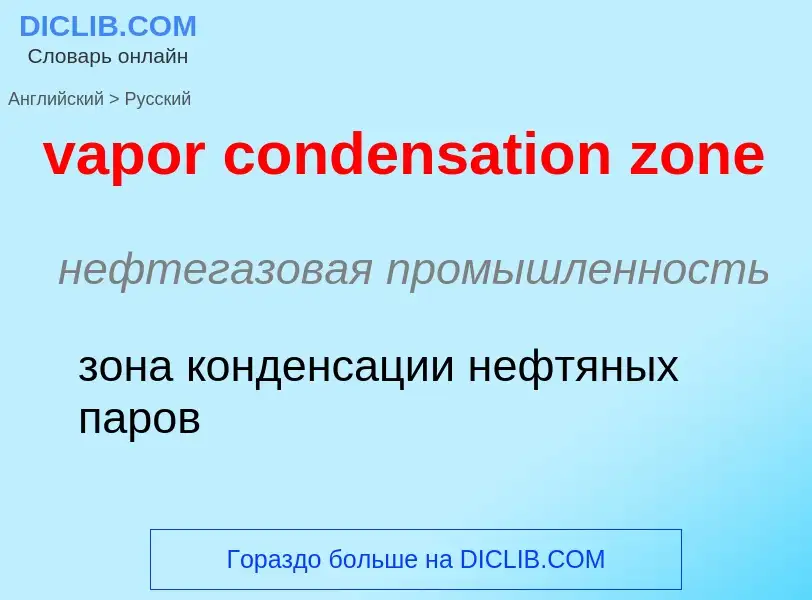Traducción y análisis de palabras por inteligencia artificial ChatGPT
En esta página puede obtener un análisis detallado de una palabra o frase, producido utilizando la mejor tecnología de inteligencia artificial hasta la fecha:
- cómo se usa la palabra
- frecuencia de uso
- se utiliza con más frecuencia en el habla oral o escrita
- opciones de traducción
- ejemplos de uso (varias frases con traducción)
- etimología
vapor condensation zone - traducción al ruso
нефтегазовая промышленность
зона конденсации нефтяных паров
строительное дело
водяной пар
Wikipedia
In organic chemistry, a condensation reaction is a type of chemical reaction in which two molecules are combined to form a single molecule, usually with the loss of a small molecule such as water. If water is lost, the reaction is also known as a dehydration synthesis. However other molecules can also be lost, such as ammonia, ethanol, acetic acid and hydrogen sulfide.
The addition of the two molecules typically proceeds in a step-wise fashion to the addition product, usually in equilibrium, and with loss of a water molecule (hence the name condensation). The reaction may otherwise involve the functional groups of the molecule, and is a versatile class of reactions that can occur in acidic or basic conditions or in the presence of a catalyst. This class of reactions is a vital part of life as it is essential to the formation of peptide bonds between amino acids and to the biosynthesis of fatty acids.
Many variations of condensation reactions exist. Common examples include the aldol condensation and the Knoevenagel condensation, which both form water as a by-product, as well as the Claisen condensation and the Dieckman condensation (intramolecular Claisen condensation), which form alcohols as by-products.



![Europa]] (artist concept)<ref name="NASA-20131212-EU" /> Europa]] (artist concept)<ref name="NASA-20131212-EU" />](https://commons.wikimedia.org/wiki/Special:FilePath/Artist's Concept of Europa Water Vapor Plume.jpg?width=200)

![Terra]] global mean atmospheric water vapor in atm-cm (centimeters of water in an atmospheric column if it condensed) Terra]] global mean atmospheric water vapor in atm-cm (centimeters of water in an atmospheric column if it condensed)](https://commons.wikimedia.org/wiki/Special:FilePath/Atmospheric Water Vapor Mean.2005.030.jpg?width=200)

